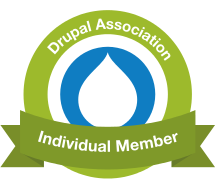SEO - Search Engine Optimisation
How will people find your website? Probably by putting words into a search engine, even when they already know the address. Do you know how those search engines actually find your site amongst the millions?
Search engines work by looking for keywords and positive signals that your site is relevant, original, and respected. They do offer a page of public guidelines for this and a thirty page introduction, emphasising the need for original content and proper site structure, but their ever-changing algorithms and formulas are kept very secret. They do also look for negative signals to decide who to ignore or penalise, even blacklisting sites they really do not like, especially ones trying dark tricks to game the results. Those tricks get short term gains at best, and earn bans and penalties in the long run.
This is a challenge. If you make no effort you risk getting ignored, and if you make the wrong effort you get demoted or banned. But if you slowly work your way up in the search results rankings over time, you are rewarded with better visibility and traffic.
So to do this the safe way you need to know what you are offering, what people are searching for, how competitive that search is, and how to attract traffic on specific search terms where you have a reasonable chance of competing. Then you need to work on search engine optimisation, or SEO, and have a patient long term strategy and monitor the results.
SEO broadly refers to both optimisation of the contents and structure of websites, and also to some of the off-site measures taken to drive traffic to a website. Good on-site SEO from the outset means your site is structured to indicate clearly to search engines what your most important topics and keywords are, without risking excessive emphasis. This is part of sensible website design and construction at the start not the finish, so it should never be an expensive and awkward retrofit done by calling in those disruptive cowboys in dark hats.
